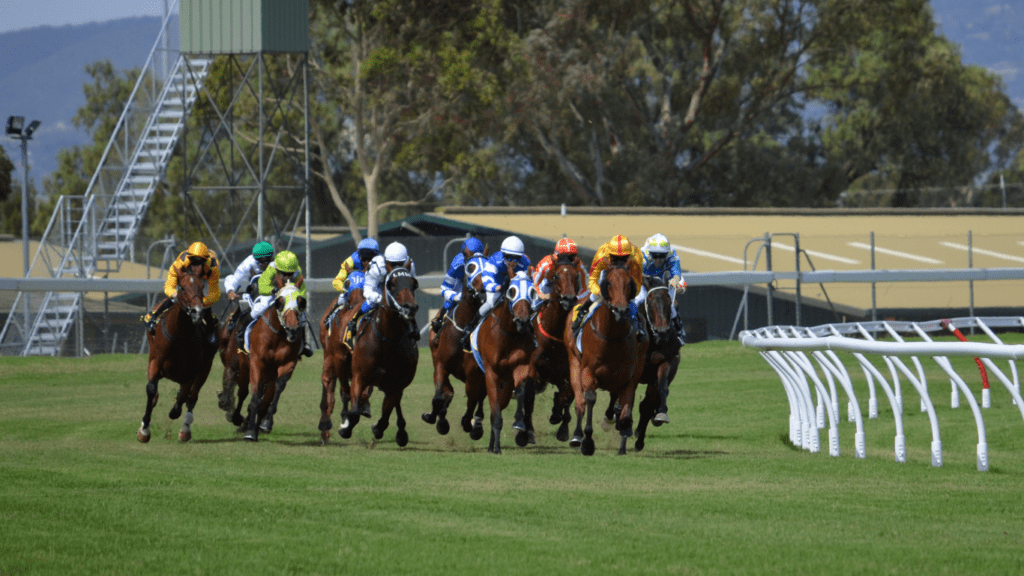The Importance of Trainers in Horse Racing
Trainers in horse racing provide pivotal support to both horses and jockeys. Their expertise ensures horses receive the precise care and training needed to compete at elite levels. Successful trainers blend knowledge of animal behavior, veterinary science, and sports strategy.
Trainers often create individualized training regimes. These regimes focus on enhancing each horse’s unique strengths. For instance, a sprint-focused horse might undergo different conditioning than a horse geared towards endurance races. Adaptation is crucial since each race demands specific physical and mental preparations.
Veterinary care is another critical aspect. Trainers work closely with veterinarians to monitor and maintain horses’ health. This includes routine checks, injury prevention, and treatment plans. A healthy horse performs better and reduces the risk of career-ending injuries.
Trainers also play a strategic role in race planning. They analyze competitors, track conditions, and racing stats to devise optimal tactics. This can involve decisions about pace, positioning, and timing. Analyzing data and observing trends allows trainers to provide jockeys with informed instructions, boosting chances of victory.
Maintaining strong relationships with owners is essential. Trainers must communicate effectively about progress, setbacks, and strategies. Owners rely on trainers’ expertise to make informed decisions regarding their horses’ careers.
Trainers are integral to horse racing’s success. Their multifaceted roles ensure that every aspect of a horse’s preparation and competition is meticulously managed. The synergy between horses, jockeys, and trainers epitomizes the essence of excellence in horse racing.
Criteria for Being a Top Trainer
Being recognized as a top trainer in horse racing requires meeting several stringent criteria. These benchmarks cover a range of achievements and skills essential for success in this competitive field.
Winning Record
A consistent winning record is a key criterion. Top trainers often have high win percentages across numerous races. For instance, a trainer managing 100 starts with a 25% win rate demonstrates exceptional capability. Data from major racing events, like the Kentucky Derby, can further validate a trainer’s success, with prestigious wins and frequent placements marking their track record.
Training Techniques
Innovative and effective training techniques distinguish leading trainers. They employ tailored exercise routines, nutritional plans, and recovery protocols for each horse. For example, a top trainer might integrate interval training to improve a horse’s stamina or adopt specialized feeding regimes to boost performance. Collaboration with veterinarians ensures horses remain in peak condition, reflecting cutting-edge knowledge in equine care.
Reputation and Influence
Reputation and influence in the racing community are critical. Esteemed trainers possess strong reputations built on ethical training practices and successful horse management. Influence is often gauged by the ability to attract top-tier horses and owners. Media presence, awards, and peer recognition contribute to a trainer’s standing. An influential trainer often shapes industry standards and trends with their methodologies and insights.
Profiles of Leading Trainers

Here are the distinguished profiles of some of the top trainers in horse racing today. Their expertise and achievements have set them apart in the industry.
Bob Baffert
Bob Baffert, with nearly 3,000 wins, stands as a titan in horse racing. Known for training Triple Crown winners American Pharoah (2015) and Justify (2018), Baffert’s stable is synonymous with excellence. His strategic prowess and ability to develop young talent make him a staple in major races.
Chad Brown
Chad Brown specializes in turf racing, holding over 1,800 wins and four Eclipse Awards. Brown trained champions like Bricks and Mortar, showcasing his ability to dominate across different distances. His expertise extends to conditioning horses for peak performance, resulting in numerous Grade 1 victories.
Aidan O’Brien
Aidan O’Brien, with over 5,000 wins, dominates European racing. As the head trainer for Coolmore, O’Brien’s success includes wins in prestigious events like the Epsom Derby and Breeders’ Cup. His training methods focus on long-term development, often shaping young horses into top-tier competitors.
John Gosden
John Gosden, boasting over 3,500 wins, is renowned for his versatility in training both flat and jump horses. Key achievements include multiple wins in the Arc de Triomphe and the King George VI and Queen Elizabeth Stakes. Gosden’s meticulous approach and adaptation to different race conditions have earned him a stellar reputation.
Todd Pletcher
Todd Pletcher, with over 5,000 wins, is a dominant force in American horse racing. His training has produced elite horses like Always Dreaming and Vino Rosso. Pletcher’s systematic training regimes and focus on nutrition and recovery protocols ensure his horses perform consistently in top races.
Each of these trainers exemplifies excellence, with their records and achievements speaking volumes about their capabilities and contributions to the sport.
Upcoming Talents to Watch
Recognizing emerging trainers in horse racing enriches the sport’s future. I’ve identified several promising individuals making waves with innovative techniques and consistent performance.
Brad Cox
Brad Cox became noteworthy due to multiple Grade 1 wins and a stellar record. He trained horses like Monomoy Girl, who won the Kentucky Oaks and Breeders’ Cup Distaff twice. Cox’s dedication to meticulous care and strategic race planning sets him apart.
Fausto Gutierrez
Fausto Gutierrez gained attention for his work with Letruska, a standout in the mare division. With victories in high-profile races like the Apple Blossom Handicap and the Fleur de Lis Stakes, Gutierrez has proven his expertise in conditioning and race day execution.
Saffie Joseph Jr.
Saffie Joseph Jr. rose to prominence with triumphs in the Haskell Stakes and Wood Memorial. Notable for his adaptability and strategic planning, he has quickly ascended in the ranks, earning respect for his ability to manage a diverse stable.
Michael McCarthy
Michael McCarthy trained Rombauer, who won the 2021 Preakness Stakes. His hands-on approach and attention to individualized horse care have led to consistent success across various prestigious races.
Joseph O’Brien
Joseph O’Brien, building on the legacy of his father Aidan O’Brien, has made significant strides. Notable achievements include winning the Melbourne Cup with Rekindling and multiple Group 1 races in Europe. His tactical acumen and commitment to innovation exemplify his rising status.
By focusing on these trainers, horse racing enthusiasts can keep an eye on individuals poised to shape the sport’s landscape. Their achievements hint at promising careers, influencing horse racing’s competitive dynamics.
Training Innovations Shaping the Industry
Top trainers continually seek advancements to enhance their horses’ performance. Today, several key innovations are shaping the horse racing industry.
Data Analytics
Trainers now use data analytics to gain insights into performance metrics. By analyzing historical racing data, trainers can tailor training programs to emphasize each horse’s strengths. This approach leads to optimized race strategies and improved results.
Advanced Veterinary Care
Advanced veterinary care ensures horses stay in peak condition. Innovations like regenerative medicine, including stem cell therapy, treat injuries faster and more effectively. Enhanced diagnostic tools help detect issues early, preventing long-term problems.
Biomechanical Analysis
Biomechanical analysis assesses the movement of horses in detail. High-speed cameras and motion-capture technology reveal inefficiencies in gait and posture. Trainers adjust techniques based on this data, leading to more efficient and safer training methods.
Customized Nutrition
Customized nutrition plays a vital role. Trainers collaborate with nutritionists to create tailored feeding plans, ensuring horses receive balanced diets with the necessary nutrients for optimal health and energy. Supplements and specialized feed address specific needs, enhancing performance and recovery.
Environmental Control
Controlling the training environment improves outcomes. Climate-controlled training facilities allow year-round conditioning irrespective of external weather. These facilities provide consistent conditions, mitigating risks related to varied climates.
Wearable Technology
Wearable technology monitors horses’ vital signs during training. Devices like heart rate monitors and GPS trackers provide real-time data, helping trainers make informed decisions about intensity and duration of exercises. This tech maximizes efficiency and ensures horses don’t overtrain.
Mental Conditioning
Mental conditioning is becoming increasingly important. Trainers use techniques to keep horses calm and focused, reducing stress during races. Methods include desensitization training and positive reinforcement, fostering better behavior and performance under pressure.
These innovations signify a transformative period in horse racing. By integrating technology and advanced methods, trainers improve performance while ensuring the well-being of the horses. The ongoing adoption of these innovations continues to shape a successful and sustainable future for the industry.


 Sherrylaines Merrill, a pivotal force in the project, brought unmatched leadership and creative direction to Bet Roll Gamble. Her deep understanding of the betting industry, combined with an innovative vision, ensured the platform offers not only valuable content but also resonates with its audience. Sherrylaines played a key role in aligning the platform’s strategy with user needs, creating a resource that is both insightful and practical.
Sherrylaines Merrill, a pivotal force in the project, brought unmatched leadership and creative direction to Bet Roll Gamble. Her deep understanding of the betting industry, combined with an innovative vision, ensured the platform offers not only valuable content but also resonates with its audience. Sherrylaines played a key role in aligning the platform’s strategy with user needs, creating a resource that is both insightful and practical.